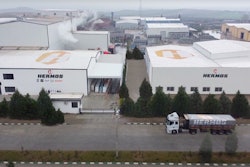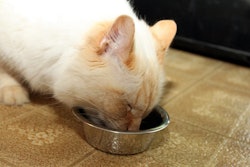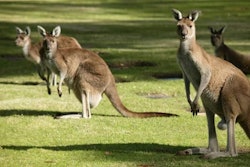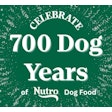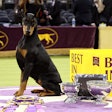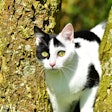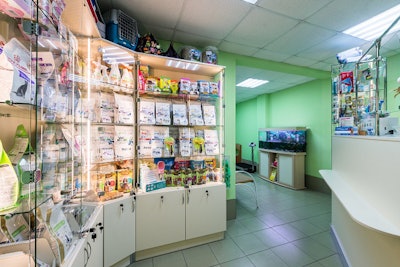
Russia has partially withdrawn GMO-related veterinary diet restrictions on pet food imports from the Netherlands, Germany and Spain, but the domestic market remains in a state of unprecedented uncertainty.
After banning more of such imports from European countries over the past year, Russian veterinary watchdog Rosselhoznadzor decided to meet importers halfway, authorizing pet food imports from the European countries for three months, starting at the end of June 2021. The intent was to avoid a shortage of certain products on the domestic market, according to Tatyana Kolchanova, general director of the Russian zoobusiness union.
“Rosselhoznadzor is putting a lot of effort into establishing effective communication channels with foreign regulators to ensure that supplied products match the Eurasian Union’s veterinary requirements,” Kolchanova said, adding that the unwillingness of foreign veterinary services to liaise with Rosselhoznadzor was the main reason why the restriction was introduced in the first place.
“As far as we are concerned, some progress in the negotiations has already been achieved, and we hope to see the restrictions abandoned in the foreseeable future,” Kolchanova said.
Still turbulence in Russian pet food market
Not everyone shares this opinion. Kirill Dmitriev, chairman of the pet business committee at the Russian business union Opora Rossii, said the Russian pet food market is passing through a period of significant turbulence.
“Everyone is impacted. Even the biggest companies are experiencing difficulties with importing pet food or raw materials, let alone small businesses,” Dmitriev said, adding that several importers and specialized retailers may be on the edge of bankruptcy.
In June, the Russian zoobusiness union forecasted a wave of bankruptcies among 12,000 Russian retailers, 3,000 veterinary clinics and 130 pet food importers. According to Dmitriev, this forecast is gradually coming true.
Russian companies produce 80% to 85% of pet food consumed in the domestic market, but this is primarily attributed to the budget segment, Dmitriev said. Premium, superpremium, holistic and medicated pet foods are mainly imported. These segments generate around 70% of revenue for specialty retailers since general food retailers remain the main channel for selling pet food in the economy segment of the Russian market, he explained.
“I used to run a company importing pet food from Europe. With no positive changes, I will have to cut staff in October,” Dmitriev said, adding that the restrictions caused an upward price rally for Western pet food in Russia, and the first examples of bankruptcies are already happening among specialty retailers.
Threat to health of Russia’s pets?
Rosselhoznadzor’s partial withdrawal of import restrictions in June has not helped much, since only a few brands were granted permission to resume imports under “enhanced veterinary control.”
“There is no clarity why Rosselhoznadzor resumed imports from some companies and kept restrictions in relation to others,” Dmitriev said. “Moreover, there are cases when even one factory producing several different product brands found that only one to two of a dozen of its brands are allowed to be exported to Russia. This doesn’t make sense to us.”
In this environment, some specialty pet food retailers had to limit sales, especially of prescription foods, to one package per person. There are concerns that pets in Russia may begin to die once retailers ran out of warehouse stocks. A petition launched at Change.org asking the Russian authorities to resume pet food imports to prevent massive deaths among pets had been signed by 70,000 citizens as of August 26.
Changing pet food trade flows
Rosselhoznadzor’s restrictions barred the way to the Russian market for some companies but opened a window of opportunities for others. “We see a rise in supplies of pet food from new destinations, primarily from Asia: China, Korea, Japan and others,” said Kolchanova.
In 2020, pet food sales in Russia totaled 200 billion rubles (US$2.8 billion), Mars Petcare estimated. Imported pet food accounted for roughly US$700 million. While everybody was confident the Russian pet food market would keep growing around 10% per year, there is now a great deal of uncertainty about what will happen with imports.
“There is no point in establishing new agreements to import pet food from the countries not subjected to veterinary restrictions yet, given that there is no transparency in Rosselhoznadzor’s action,” commented a member of the Russian pet food industry. “Nobody can tell you why France has avoided restrictions, and nobody will guarantee you it will keep avoiding them.”
“I don’t know over what reasons Germany and the Netherlands are banned, and France and Italy are not,” Dmitriev said. “To me, this looks like a political affair. It also seems that Rosselhoznadzor has partly withdrawn restrictions until [2021 Russian Parliament] elections. We don’t know what will happen after that—we may see new restrictions put in place.”
In the first half of 2021, France exported 18,045 tons of pet food to Russia, the Russian Federal Customs Service estimated. Other estimates include 13,258 tons from Italy, 11,452 tons from China and 7,535 tons from Belguim. All major suppliers increased deliveries by 20% to 80% compared to the previous year.
“This [growth in export from alternative destinations] is a natural phenomenon because the market doesn’t like a vacuum,” Dmitriev said. “I’m absolutely sure that the trend of rising supplies from new countries will continue, providing that no major changes from Rosselhoznadzor happen in the near future.”
According to Rosselhoznadzor, the European Commission has canceled an online meeting at which the Russian veterinary restrictions were to be discussed, and has not proposed a new time for a meeting. Currently, some Russian companies are working on an appeal to the Russian Federal Antimonopoly Service and federal courts, hoping to force Rosselhoznadzor to abandon or at least soften the restrictions, Dmitriev said.


